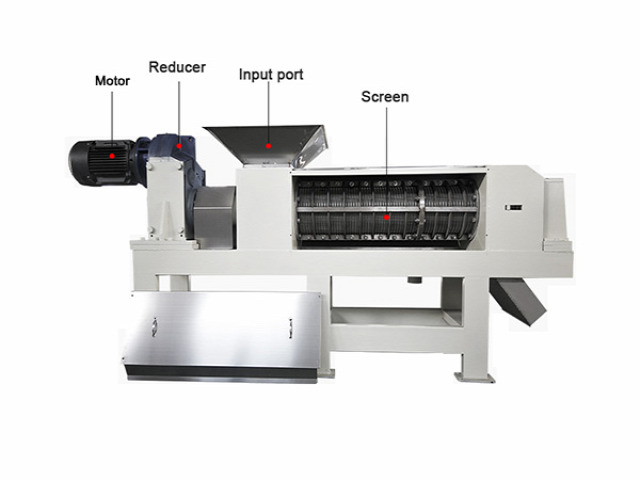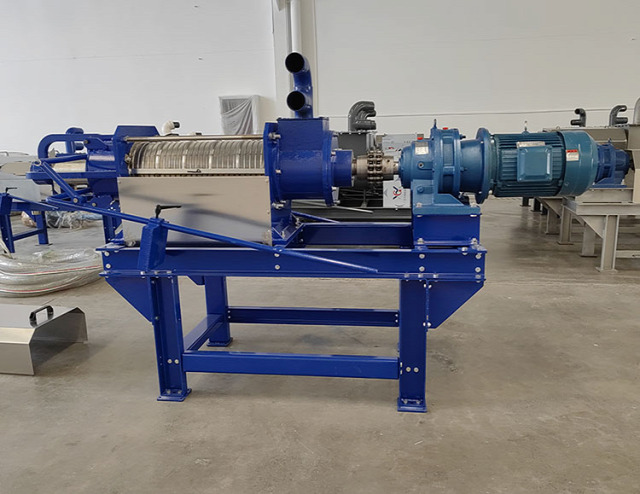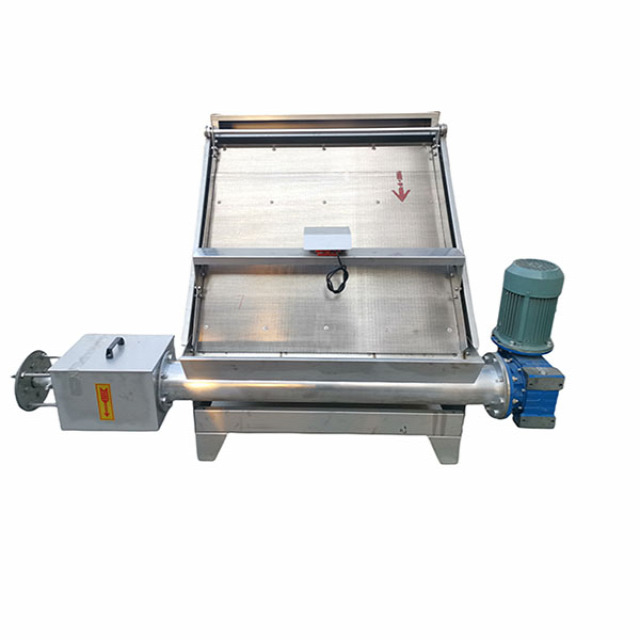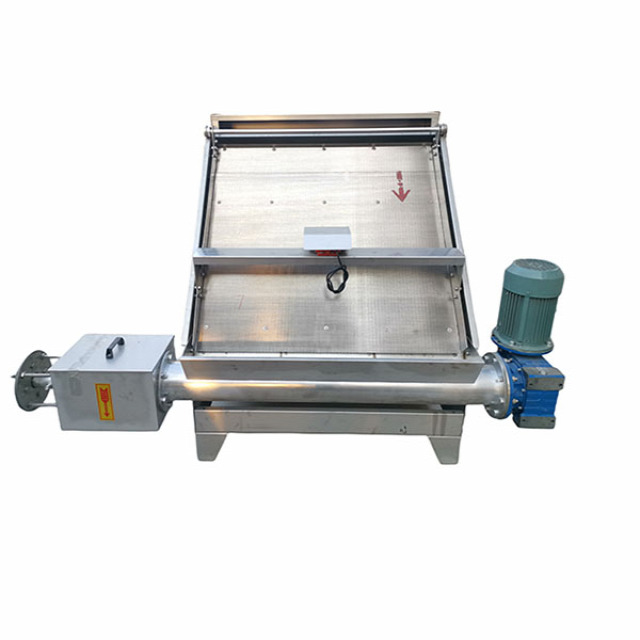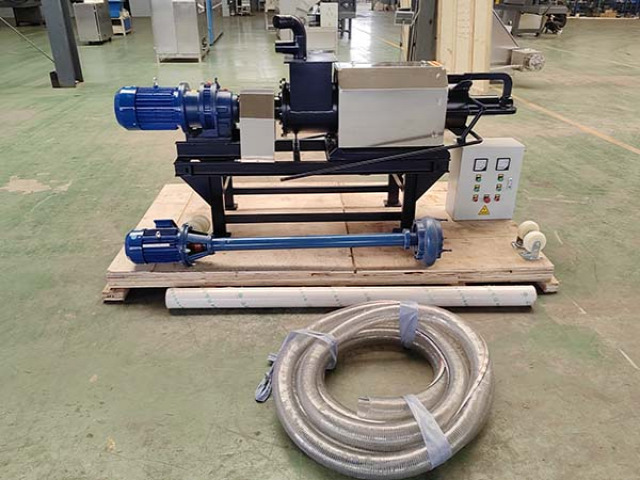In the ever-evolving landscape of agriculture and environmental sustainability, innovative technologies play a pivotal role in transforming waste into valuable resources. One such groundbreaking technology is the chicken manure dewatering machine, specifically the manure screw separator. In this post, we delve into the multifaceted benefits and applications of this equipment, exploring its role in processing various organic wastes and contributing to more sustainable farming practices.
1. Understanding the Manure Screw Separator
The screw press separator is a sophisticated piece of machinery designed to efficiently separate solid and liquid components from animal manure and organic wastewater. Its applications extend beyond just the agricultural sector, encompassing diverse sources like dewatering spent grains, biogas slurry, and slaughterhouse sewage. At its core, the machine aids in waste management, mitigating environmental impact, and promoting a circular economy in agriculture.
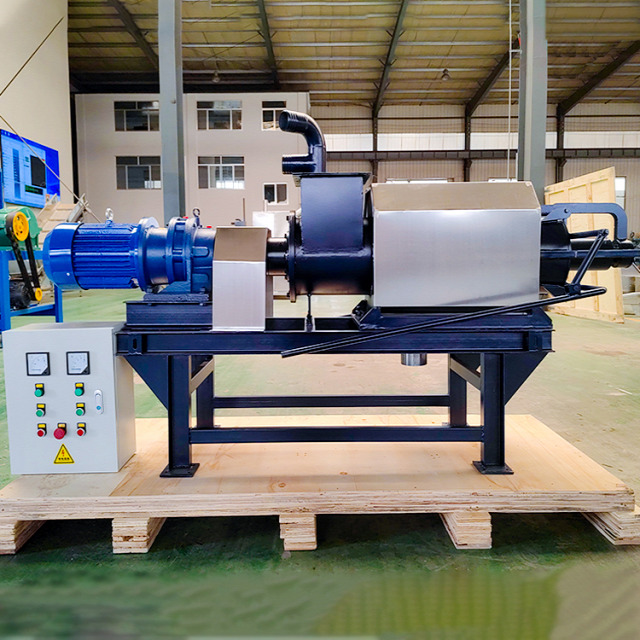
2. Versatility in Waste Processing
One of the key strengths of the manure screw separator lies in its versatility. It is adept at handling a range of organic wastes, including cow manure, pig manure, and chicken manure. Notably, it addresses the unique challenges posed by different types of chicken manure, with a caveat that broiler chicken manure, due to its thin and sticky nature, requires a specialized multi-disc dewatering machine for optimal processing.
3. Solid Benefits: Repurposing Separated Solids
The primary output of the manure screw separator is the separation of solids from the liquid component of the waste. These separated solids hold significant value and can be utilized in various ways to enhance agricultural efficiency.
3.1. **Animal Feed**
One practical application is the use of separated solids as feed for other animals, such as pigs and cattle. This not only reduces the environmental footprint of waste but also contributes to a more sustainable and integrated farming system. The nutrient-rich solids serve as a valuable supplement, promoting healthier livestock and minimizing the need for additional feed resources.
3.2. **Direct Use as Fertilizer**
The separated solids from chicken manure are rich in nutrients essential for plant growth. As such, they can be directly employed as fertilizer for crops. This organic fertilizer enhances soil fertility, improves its structure, and fosters better crop yields. By directly applying the solid component to the fields, farmers contribute to a closed-loop system, where waste becomes a valuable resource in the agricultural ecosystem.
4. Fermentation for Organic Fertilizer Production
For those seeking to further elevate the value of the separated solids, an additional option is to ferment and process them into organic fertilizer. By introducing compound raw materials into the fermentation process, the chicken manure is transformed into a high-quality fertilizer. This organic fertilizer not only enriches the soil but also promotes sustainable farming practices, aligning with the global shift towards eco-friendly agriculture.
5. Environmental Impact and Sustainability
Beyond the direct benefits for farmers, the use of chicken manure dewatering machines contributes significantly to environmental sustainability. Efficient waste management minimizes the risk of water pollution and reduces greenhouse gas emissions associated with traditional waste disposal methods. The repurposing of waste into valuable resources aligns with broader goals of sustainable agriculture and responsible environmental stewardship.
6. Challenges and Considerations
While the manure screw separator proves effective for various types of chicken manure, it's crucial to note the distinction between laying hen manure and broiler chicken manure. Broiler chicken manure's thin and sticky consistency may impact the separation process's efficiency. In such cases, a multi-disc dewatering machine tailored for the specific characteristics of broiler chicken manure is recommended.
7. Conclusion: Paving the Way for Sustainable Agriculture
In conclusion, the chicken manure dewatering machine, particularly the manure screw separator, stands as a transformative tool in modern agriculture. Its ability to efficiently process organic waste, from various animals and industrial sources, contributes to enhanced farm productivity and environmental sustainability. By repurposing waste into valuable resources, farmers are not only managing their operations more efficiently but also actively participating in the global movement towards sustainable and responsible agricultural practices. The utilization of such innovative technologies marks a significant step towards a more harmonious coexistence between agriculture and the environment.


